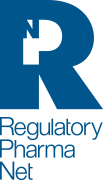The regulation detailing the organization and functioning of the Scientific-Economic Commission of Pharmaceuticals (CSE) of the Italian Medicines Agency (AIFA) was finally approved on 17th April 2024 by the AIFA Board of Directors, chaired by the recently appointed President Robert Giovanni Nisticò.
As discussed in our previous blogs (“New AIFA Regulation: where are we?” and “Updates on the new AIFA regulation: CSE and reorganisation”), the CSE takes on responsibilities previously held by the Technical-Scientific Commission (CTS) and the Pricing and Reimbursement Committee (CPR).
The Commission consists of both ex officio members (like the Technical-Scientific Director of AIFA and the President of the Higher Institute of Health) and non-ex officio members appointed by various government bodies, serving three-year terms with a possibility for one renewal.
The newly published rules for AIFA CSE emphasize a structured approach to pharmaceutical policy, focusing on access, safety, value-based pricing, and alignment with other European Agencies. Here are the primary aspects based on the principles and mandates established:
Reference Principles:
- Universal Access: The Commission ensures universal and homogeneous access to innovative medicines, orphan drugs, and essential drugs for treating serious, acute and chronic, diseases through the National Formulary, aligning with the Essential Levels of Assistance (LEA) provided by the National Health Service (SSN).
- Safety and Appropriateness: The Commission guarantees the safe and appropriate use of medicines.
- Value-based Pricing: The Commission adopts a pricing policy that rewards drugs offering added therapeutic value, which are considered innovative based on set technical-scientific criteria.
- European Alignment: Decisions also consider guidance from the European Medicines Agency (EMA) and other European regulatory and Health Technology Assessment (HTA) agencies, ensuring that domestic policies align with broader European standards.
Mandatory Binding Opinions:
- Supply Regimen: The Commission defines the supply regimens, including prescription and dispensing methods, especially when these are restricted to specific specialists or healthcare settings.
- Place in Therapy: The Commission determines a drug’s therapeutic role and its added therapeutic value when admitted to SSN reimbursement.
- Innovation criteria: The Commission sets criteria for categorizing drugs as innovative.
- Innovation status: The Commission confirms whether a drug meets the innovation criteria and can therefore access the resources specifically dedicated to innovative drugs.
Mandatory Non-Binding Opinions:
- Price Negotiation: The Commission evaluates scenarios for pricing negotiations and outlines conditions for SSN reimbursement.
- Usage Monitoring: The Commission assesses the implementation of monitoring systems for reimbursed uses, such as registries or therapeutic plans.
- Conditional Reimbursement: The Commission explores and suggests mechanisms for conditional reimbursement along with the relevant technical parameters.
- Draft Negotiation Agreement: After the negotiation, the Commission proposes the negotiation agreement detailing the classification for reimbursement, supply regimen, price, and other reimbursement conditions.
- Early Access Evaluation: The Commission evaluates the reimbursement of unlicensed drugs or off-label uses under Law 648/96.
- Clinical Assessment: The Commission provides opinions, limited to the national care setting, in relation to the parameters for the joint clinical assessments.
- Technical and scientific evaluations: The Commission performs technical and scientific evaluations for the purpose of marketing authorization, on clinical trials and on the findings of pharmacovigilance activities. Upon request by the AIFA President or the Technical-Scientific Director or the Italian members of CHMP or PRAC, the Commission also issues opinions on any other technical-scientific topics of particular importance as well as on therapeutic equivalence.
Organisation:
- Decision-making Process: Decisions are made during in-person meetings to be held once per month or as needed, depending on the number of ongoing procedures. Remote participation is allowed under specific conditions to ensure legal participation and voting.
- Hearings: the Commission may decide to summon applicants whenever deemed necessary, while applicants are allowed to request only one hearing for a maximum time of 30 minutes.
- Rejections: In case of a motivated rejection of the submitted application by the Commission, the interested party has the right to produce up to two rounds of counterarguments, after which the Commission gives its final opinion. Any counter-deductions must be submitted within 15 days after the notice of denial or any subsequent confirmation of the denial.
- Patient Associations and Scientific Societies: The Commission can invite patient associations or scientific societies to hearings, giving them a platform to inform discussions relevant to the topics being debated. However, their contributions are considered purely informative.
- Transparency and Conflict of Interest: Members must declare any potential conflicts of interest and adhere to confidentiality obligations. The Commission’s activities and opinions must be transparent, with documents accessible as per current legislation. Members of the Commission cannot meet with representatives of Pharmaceutical Companies outside the Agency with respect to procedures concerning medicines or categories of medicines submitted for evaluation.
Overall, the regulation formalizes the Commission’s structure and procedures to ensure efficient, transparent, and fair evaluation and recommendation processes regarding pharmaceutical policies and pricing.
Regulatory Pharma Net is able and ready to fully support pharmaceutical companies navigating the new Italian landscape, offering specialized services, from market access strategy to implementation and facilitating meaningful engagement with the Italian Agency.




